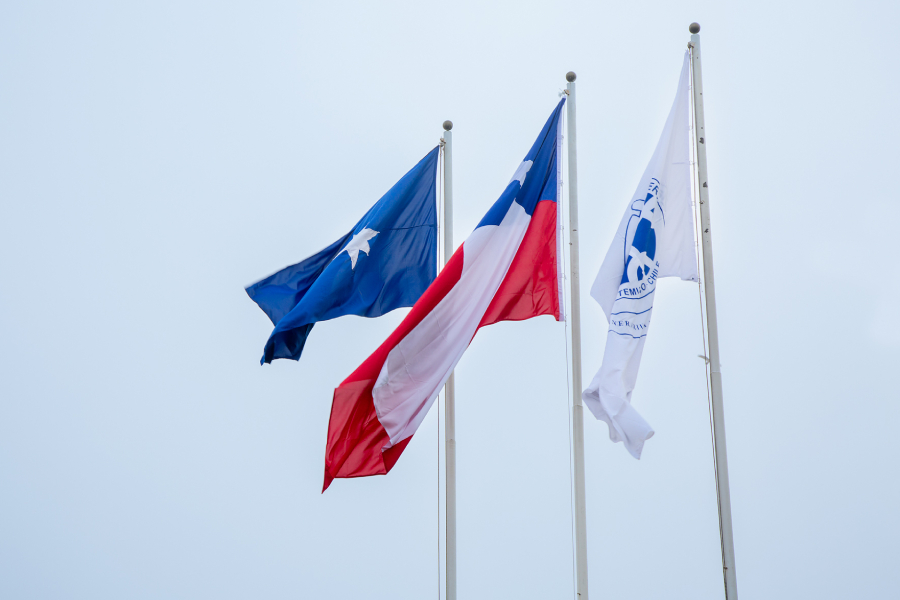|
From June 1 until June 27, Universidad de La Frontera celebrates the beginning of the new cycle and the return of the sun, which is known as “Wiñoy Txipantü” in the culture of the Mapuche people. |
With traditional Mapuche ceremonies, games, food, music and an oral competition, Universidad de La Frontera (UFRO) started the celebration of the beginning of the new cycle and the return of the sun, which is known as “Wiñoy Txipantü” in the Mapuche culture. The celebrations started on June 1, by raising the Mapuche flag on all of UFROs university campuses, which is called “Wüñelfe” or “Wenüfoye” in Mapudungun, the Mapuche language, and will last until June 27. The official programme for the celebrations was put together by a special committee, which is made up by different units of the university. “Our committee agreed on incorporating certain traditional symbols in the programme, such as the official flag of the Mapuche people, which was raised on all of UFROs campuses to give start to the celebrations,” said Osvaldo Curaqueo, the director of the Institute of Indigenous and Intercultural Studies. “The celebration and elaboration of this programme is another effort of the university to strengthen the intercultural relations both within the university, as well as within our regional context,” he added. Last Friday, the main activity took place on the official ceremonial space of the Mapuche people, the “Paliwe”, on the Andrés Bello Campus of UFRO, where the whole university community was invited to get together for a “Mizagun”, to try the traditional food of the Mapuche people and to immerse in the Mapuche culture. “We want to invite everyone of our university community to join the activities that are part of the official Wiñoy Txipantü programme, not only to celebrate, but also to get together to learn more about our ancestral culture and traditions. As a university community, we need to offer and promote more opportunities like this, since these activities also strengthen our efforts,” explained the director of the Institute of Indigenous and Intercultural Studies. Written and translated by: UFRO Communications Office
|





